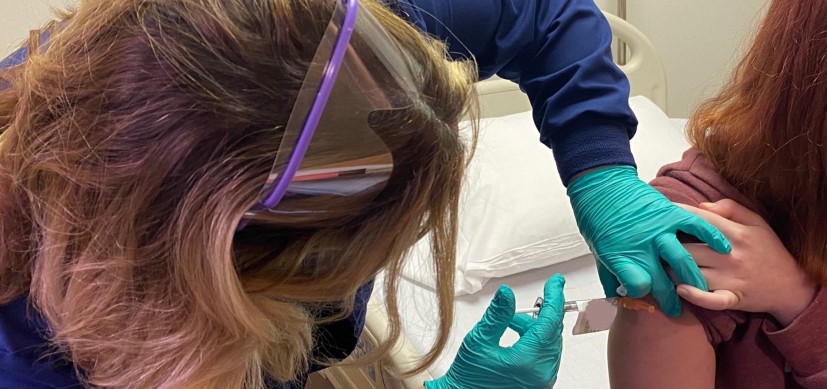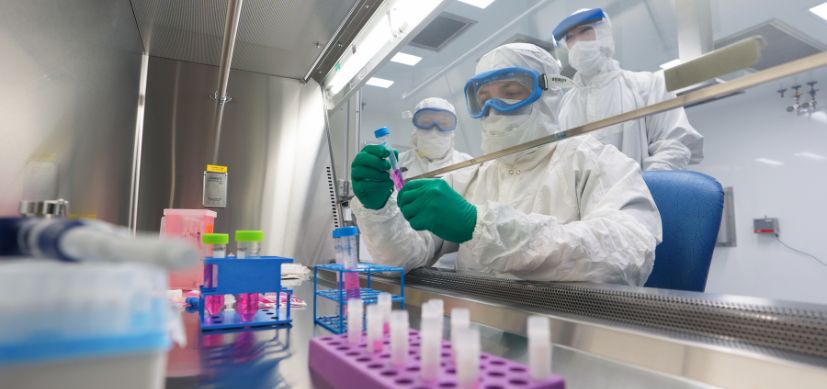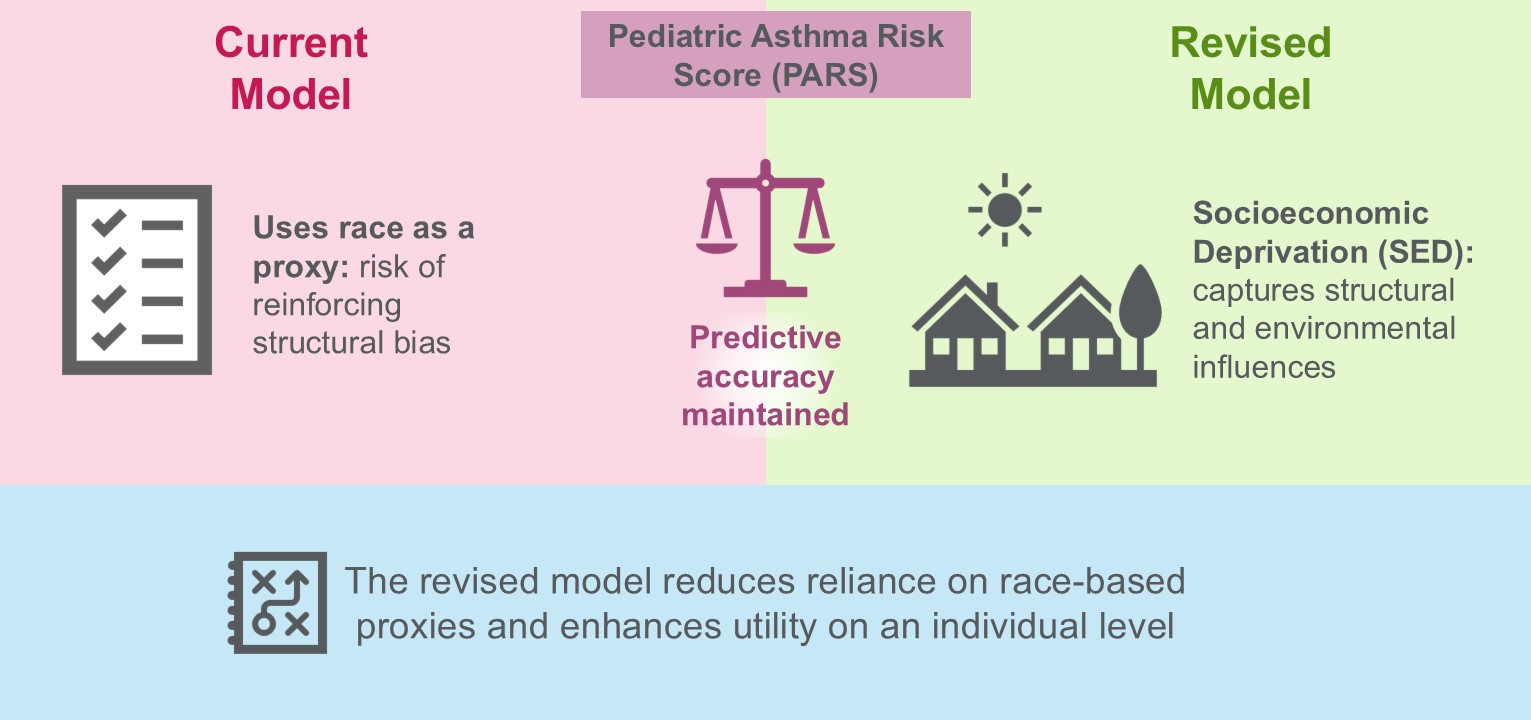Clinical Trial Results: Universal Flu Vax Candidate Reaches 18-Month Milestone
Post Date: December 7, 2020 | Publish Date: Dec. 7, 2020


Even as scientists grapple with the once-in-a-lifetime COVID-19 pandemic, vaccine researchers report taking a major step closer to achieving a long-sought goal against a yearly health threat–development of a universal flu vaccine.
Phase 1 clinical trial results published Dec. 7, 2020, in Nature Medicine show that a “chimeric hemagglutinin-based” vaccine was safe to receive and induced “a broad, strong, durable and functional immune response” against three major group 1 influenza A virus strains (H2, H9 and H18).
Importantly, after an initial surge of antibody production, the longer-term immune response stabilized six months after vaccination at a protective level that has lasted at least 18 months for most participants.
“Developing an influenza vaccine that would provide protection from multiple influenza strains is the holy grail for influenza vaccines,” says David I. Bernstein, MD, MA, Director, of Gamble Program and VTEU at Cincinnati Children’s and a co-author of the study.
The latest study was spearheaded by Florian Krammer, PhD, and a team of vaccine experts at the Icahn School of Medicine at Mount Sinai. Co-authors include Cincinnati Children’s Monica McNeal and scientists from Duke University, University of Chicago, GlaxoSmithKline, University of Natural Resources and Life Sciences in Austria, and the PATH global health research center in Seattle.
The findings build on initial results reported in 2019 in The Lancet: Infectious Diseases. Bernstein was first author of that report.
Even as COVID-19 spreads around the globe, seasonal influenza viruses have killed 290,000 to 650,000 people every year, according to the World Health Organization.
Developing vaccines against influenza has been a major challenge because the virus strains constantly drift and shift, forming at least 28 known subtypes.
Each year, a network of leading research centers–including Cincinnati Children’s–race to develop new vaccine cocktails to anticipate the key strains moving around the globe. However, the effectiveness rates have varied. Also, many people never get a flu vaccine because the virus mix changes before enough supply can be made, stored and distributed.
A new approach
Conventional influenza virus vaccines induce strain-specific neutralizing antibodies by targeting receptors on the frequently changing head of the viral hemagglutinin protein. The new vaccine candidate works by targeting the protein stalk, which changes much less frequently.
“The approach taken here was to improve the response to that part of the virus that is shared by many strains. The broad antibody response that was induced by this strategy is an important step forward in our hunt for a better influenza vaccine,” Bernstein says.
So far, the project has focused on one set of flu viruses: type A, group 1. To generate a truly universal flu vaccine, scientists hope to demonstrate similar progress against type A, group 2 strains, which include the H1N1 and H3N2 viruses, plus the various influenza B viruses.
Much more work ahead
Even as teams work to expand how many strains can be covered, scientists still need more answers about how the human immune system builds defenses against the flu.
Cincinnati Children’s is playing a leading role in that ongoing research. In 2019, the medical center received a $30 million grant from the National Institute of Allergy and Infectious Diseases (NIAID) to track flu exposure and vaccine response among 2,000 sets of mothers and infants from the Cincinnati area and from Mexico City.
The new Influenza IMPRINT Cohort study seeks to explore the emerging idea that a person’s very first influenza virus exposure impacts the magnitude, durability and breadth of immune response to all future flu exposures. The multi-year project is led by Mary Allen Staat, MD, MPH,
Read the Mount Sinai announcement
Read more about the Gamble Vaccine Research Center at Cincinnati Children’s
Cincinnati Children’s is one of 10 sites in the national Infectious Diseases Clinical Research Consortium
Read more about the development of a life-saving rotavirus vaccine
Read more about the groundbreaking Sabin polio vaccine
| Original title: | A chimeric hemagglutinin-based universal influenza virus vaccine approach induces broad and long-lasting immunity in a randomized, placebo-controlled phase I trial |
| Published in: | Nature Medicine |
| Publish date: | Dec. 7, 2020 |







